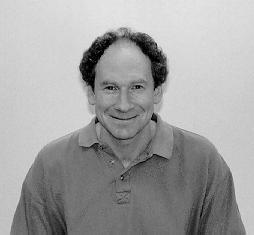Lee Ohanian '93
 Lee Ohanian was born in Los Angeles, California on February 24 1957. He attended the University of California at Santa Barbara from 1977 to 1981 and received a BA degree in 1979 and a MA degree in economics in 1981.
Lee Ohanian was born in Los Angeles, California on February 24 1957. He attended the University of California at Santa Barbara from 1977 to 1981 and received a BA degree in 1979 and a MA degree in economics in 1981.
He then pursued a career as a business economist and by 1988 he was a vice president at the Security Pacific Bank. He came to the University of Rochester in the fall of 1988 and began graduate studies in economics.
He received a Wallis Fellowship from 1988 through 1992 and pursued his research in macroeconomics under the direction of Professor Thomas F. Cooley. Soon after his PhD, he joined the University of Pennsylvania as an assistant professor of economics.
In his dissertation, he examined the macroeconomic effects of war finance and this interesting line of work culminated in two notable publications:
"The Macroeconomic Effects of War Finance in the US: World War II and the Korean War", American Economic Review, March 1997.
This paper presents a quantitative evaluation of the economic effects of the different policies used to finance World War II and the Korean War. While World War II was financed primarily by using debt, the Korean War was financed almost exclusively by taxes. The paper finds that using higher taxes to finance World War II would have resulted in much lower output and welfare relative to the actual policy.
"Postwar British Economic Growth and the Legacy of Keynes", Journal of Political Economy, June 1997, (with Thomas F. Cooley).
Keynes had recommended that Britain tax capital income at a much higher rate than the US during the war. This paper argues that the welfare costs of Keynes's policies were very high and that Britain's poor macroeconomic performance in the early postwar period reflects the high tax on capital.
Apart from being an economist, Lee is also a great cook. He won the second prize at the 'The Cook-Off' contest held at the Gilroy Garlic Festival. The recipe was later published in a magazine.
Lee Ohanian is now an associate professor of economics at the University of Minnesota, and an economist at the Federal Reserve Bank of Minneapolis.
Ananth Seshadri (July 14, 1998)
